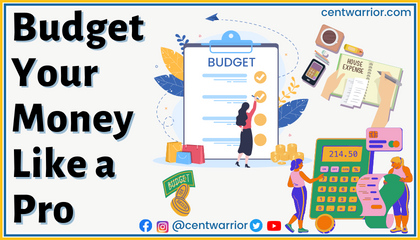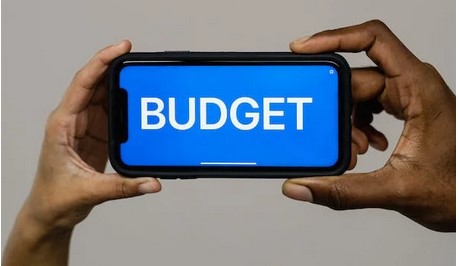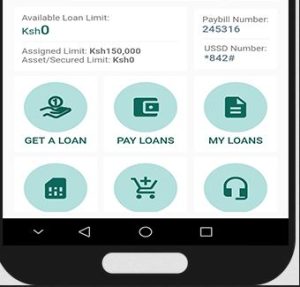Mastering how to budget your money is the key to saving, avoiding debt or getting out of it, and living within your means. Of course, you must stick to it, which means making it as practical as possible.
Before anything, you must list your debts (if any), set up a starter fund, and set any other financial goal. Then list all your income and expenses, subtract the latter from the former to equal zero, and track your budget for accountability.
You can, after that, track your budget to stay accountable and ensure you prepare the next budget at the start of the month.
Regarding the budgeting formula to ensure the difference between the expenses and income is zero, our top recommendation is Zero-Based Budgeting (ZBB) for reasons I’ll explain later.
It’s, however, not the only budgeting formula, as you can go for the 50/20/30 Rule, the Envelope System, Reverse Budgeting, Bare-Bones Budgeting, or any other.
I’ll share all these budgeting methods to enable you to decide what to use, as they all have different goals. So, regardless of your income size, you can make a working budget, and all show you how to do it exactly.
Here’s what you can expect to learn:
- What is a budget?
- Why do you need a budget?
- How do you make a monthly budget?
- How do you budget on a low income?
- What are the best personal budgeting methods?
Let’s dive in!

What’s A Budget?
A budget is a written plan for spending money over a certain period, ordinarily a month. The plan could also be in a soft copy (I stand corrected).
According to American personal finance expert, author, and radio host Dave Ramsey;
‘a budget is telling your money where to go instead of wondering where it went.’
So, if you’ve to take charge of your income and expenses, a budget has to be center stage, preferably written down or typed.
Why Do You Need a Budget for Your Money?
Most people assume that only those with a big paycheck require a budget; for others, it’s for those on a meager salary. Well, that’s not it.
‘Budgeting is not for those without money but for everyone who wants to ensure that their money is not enough,’ according to Ugandan-born legal coach and author Rosette Wanambe.
We would love to ensure our money is enough, meaning we all need a budget. Here are the primary reasons a budget is essential:
a) Controls Spending
‘You must gain control over your money, or the lack of it will forever control you,‘ counsels Dave Ramsey.
A budget’s job is to ensure you only spend what you can afford and what you’ve planned for. It restricts you from buying out of impulse and overspending, enabling you to control your finances.
b) Tracks Expenses
A budget enables you to monitor your monthly expenses and adjust them accordingly. You get to determine where you spend the most money and devise ways to reduce the costs if they are non-essential.
c) Enables Saving
Every budget has a savings allocation, and when it does, it instills in you the saving discipline. With it, it becomes easy to save for your emergency fund, sinking fund, retirement plan, and any savings goal.
d) Avoid Debt or Get Out of It
A proper budget allocates some money to debt repayment, so you can quickly start getting out of debt. Even better, you avoid borrowing since you also assign some cash to your emergency fund until you fully fund it.
So it becomes easier to stay away from debt. Besides, a budget compels you to live within your means, which is critical to living debt-free.
e) Enables Investing
A budget also enables you to spare some money for investment. You can save little by little in a sinking fund which allows you to buy a home or make any investment.
Again, the key here is to plan for everything properly; a budget does that for you.
f) Minimizes Financial Stress
There’ll always be some financial stress, whether you have money or not. If you have the money, you must think of how to spend, manage and grow it, and when you don’t have it, you worry about the bills, and loans, among other concerns.
With a budget, however, you can assign a job to every coin, especially with a zero-based budget, and that takes away financial stress.

g) Room for Fun
Most people don’t budget because they think it’s too restrictive, which could be true. But realistically, a budget doesn’t prevent you from having some fun if you can afford it.
How about you also budget for fun? You can do that with a sinking fund. Save for it every month, and you can have the fun you want, albeit after a while.
h) Financial Stability
A budgeting system like the zero-based budget allows you to balance your after-tax income with your expenses and savings. Nothing outweighs the other, and that stabilizes your finances.
Remember, you live within your means when working with a budget and wouldn’t have to borrow. From where I stand, that’s financial stability.
How to Make a Monthly Budget for Your Money?
Here are the seven essential steps for creating a budget:
Step 1 – List Your Debt First
Before you can start budgeting, list all your debt as you’ll have to budget for them. Include personal loans, HELB, and any other debt you might have.
Step 2 – Set Up a Starter Fund
When a financial emergency strikes, you wouldn’t want to fall back to the same debt you are trying to get out of. Therefore, you should set up a starter emergency fund to handle unforeseen and unplanned costs.
Ideally, the starter fund should be $1000 (or Ksh 100,000) if you make Ksh 100,000 or more. But if you make less, the starter fund should equal two months of living expenses.
And once you get out of debt, you’ll need to completely fund your emergency fund to equal 3-6 months of your household’s monthly living expenses.
Step 3 – Set Any Other Financial Goal
While building an emergency fund is one of the financial goals you should have, it’s not the only one. You may also set up a sinking fund to take care of specific large purchases, start a business, or pay school fees.
Additionally, include savings here, and when it comes to the Zero-Based budgeting, which I’ll discuss in step 6, have them on the expense side.
Step 4 – Determine Your Take-Home Pay or Net Income
How much do you remain with at the end of the month after deductions like taxes, NHIF, and NSSF? That’s your net income or take-home pay.
If you focus on your gross pay (total pay without the deductions), you might think you’ve more money when you don’t.
If you are a freelancer with an irregular income, try to determine your average income after the deductions and work with that.
Step 5 – Determine Your Expenses
Now that you know how much you make, determine how much you spend per month. For easy adjustment later, list the expenses as follows:
- The ‘Four Walls’ – The expenses in this category include food/groceries, shelter (rent/mortgage), utilities (water, gas, and electricity), and transport. Note that some expenses can be variable, so you must be flexible with your budget allocation.
- Other essentials – include insurance (NHIF, auto insurance, life insurance, home insurance, and any additional must-pay insurance) and childcare costs here
- Extras – This is the fun bit. Include costs like entertainment, subscriptions, vacations, dine-outs, and others. Remember, if you are trying to get out of debt or attain a specific financial goal, you should cut down on some extras.
- Month-specific costs – These costs include those associated with holidays, birthday celebrations, and back-to-school costs, among others. Also, cut down on these costs when trying to get out of debt or hit a financial goal.
- Giving – Ordinarily, 10% of your earnings
- Miscellaneous – Don’t forget to leave some room in your budget for miscellaneous expenses.

Step 6 – Deduct Expenses from Income to Equal Zero
Take away the expenses from your net income and ensure the difference is zero. That’s where Zero-Based budgeting comes in.
A Zero-Based Budget allows you to assign a job to every shilling you make. With it, you can adjust the expenses to match your income to live within your means.
Remember to include the savings in the expenses side when balancing off the sides.
Step 7 – Track Your Budget
Lastly, follow up on your budget to ensure you stick with it and stay accountable. Avoid overspending so that you can attain your money goals.
Types of Personal Budgets (Budgeting Formulas/Methods to Try Out)
We recommend these budgeting methods if you struggle to create a personal working budget.
1. Zero-Based Budgeting (ZBB) – Our Most Recommended Budgeting Method
In a Zero-Based Budget, you assign a job to every shilling and cent you earn. In that case:
All Your Income – All Your Expenses Plus Savings = Zero
To do that:
- Determine your monthly after-tax income and add any additional earnings for the month
- Subtract all expenses for the month (that includes the fixed, debt, and emergency expenses) and savings
- If the expense side is more than the income side, cut down on the costs until they equal the income
Overall, the ZBB method is best for attaining short-term financial goals and for those new to budgeting since every coin has a job.
2. The 50/30/20 Budget Rule
Unlike the Zero Based Budget, the 50/30/20 Rule is percentage-based. This budgeting rule which U.S senator Elizabeth Warren advocated for in her financial book, ‘All Your Worth: The Ultimate Lifetime Money Plan,’ focuses on the following allocations of your take-home pay:
- 50% needs – They include necessities like food, utility bills, groceries, medication, rent/mortgage, insurance, and transport
- 30% wants – They include the non-essentials like dine-outs, entertainment, hobbies, holidays, memberships, shopping, and subscriptions which make your life more comfortable
- 20% financial goals – The goals here include saving, investing, debt repayment, emergency fund, buying a home, and starting a business, among others
Realistically, the 50/30/20 Rule is only factual when you have a decent income, which allows you to allocate your earnings to wants and financial goals generously.
It may not be ideal when your goal is to save more or when you are on a low income, and that’s why we recommend the Zero-Based Budget.
3. The Envelope Method
How about you do things the old-school way? The envelope budgeting technique requires you to allocate an envelope to a monthly spending category, such as food, groceries, rent, savings, transport, and entertainment.
You’ll then need to stash some cash into each of the envelopes. Once you empty a specific envelope, you cannot take money from another envelope for the category until the end of the month.
So, you must know your expenses well and stay disciplined once you start spending. Therefore, the envelope method is best for those who want to self-train themselves to be financially disciplined, as it discourages overspending.

4. Bare-Bones Budget
An issue like a job loss or a pay cut may force you to only pay for necessities like food, groceries, utilities, health insurance, and rent. So, you wouldn’t have room for dine-outs, movie dates, subscriptions, and fashion.
That’s attainable with a Bare-Bones Budget. It’s a minimalist budget that involves the following:
- First, list down your basic needs (those mentioned earlier that you can’t live without)
- Cut out the non-essential expenses, which I also mentioned earlier
- Learn how to save at any opportunity
Remember, Bare-Bones Budgeting shouldn’t be permanent. It should only get you by until your financial crisis ends. After that, you can pick any other budgeting method shared above or below.
Other Methods to Budget for Your Money
You can also check out these budgeting methods:
- The 60/30/10 Rule – This personal budgeting method requires you to split your net pay into 60% savings, 30% basic needs, and 10% wants. It’s ideally best for those who want to save more for a major financial goal, such as buying a home, fully funding an emergency fund, or paying down a huge debt.
- The 70/20/10 Rule—This budgeting rule dictates that 70% of your net income should go toward expenses, 20% to savings, and 10% to investments. This rule is ideal for those with more expenses, especially those living paycheck to paycheck.
- Reverse/Pay-Yourself-First Budgeting – This formula requires you to first save after payday and then spend what remains. Thus, it’s a minimalist budget style for those prioritizing financial goals.
- The 50/40/10 Rule – This budgeting rule expects you to split your net income into 50% basic needs, 40% savings and debt repayment, and 10% wants. The method is best for those who want to save more and still pay for all their basic needs.
- The 60/40 Budgeting Rule – This budgeting rule requires you to split your net income into 60% needs and the remaining 40% into short-term savings, long-term savings, retirement savings, and wants, 10% each. Anyone wishing to save for the short-term and long-term can use the 60/40 Rule.
How to Budget Money On Low Income?
We recognize it’s not easy to budget when living paycheck to paycheck. That, however, doesn’t mean you can’t budget. Here are tips worth remembering when you want to budget on a low income:
- Cut out extras like unnecessary subscriptions, streaming services, and memberships
- Skip dine-outs
- Save on transport by using public transport, biking, or walking when necessary
- Plan your meals
- Set up an emergency fund
- Go for cheaper and free entertainment
- Make more money by working overtime, starting a side hustle, or freelancing
- Save on utility bills by finding cheaper alternative energy sources, avoiding water wastage, and switching to power-efficient lights and appliances
Concluding Remarks On How to Budget Your Money:
As shared, anyone can budget for their money, regardless of paycheck size. All it takes are the proper steps and a working budgeting method, which I’ve shared.
And if you find it challenging to budget, talk to us on social media. We strive to offer you the right resources to make budgeting seamless and enjoyable.
Also Read: How to Pay Off Debt Quickly







